Non-Alcoholic Wine Might Be Wine After All
It's a properly fermented product, and CAN be terroir-driven and varietally expressive.
Okay, wine friends, take a deep breath.
Exhale, fully.
Ready? Here we go.
Consider this Part II of my "We Need to Talk About" series, the first of which covered Orange Wine. And the history of the orange stuff plays heavily into my thinking on non-alcoholic and low-alcohol wines.
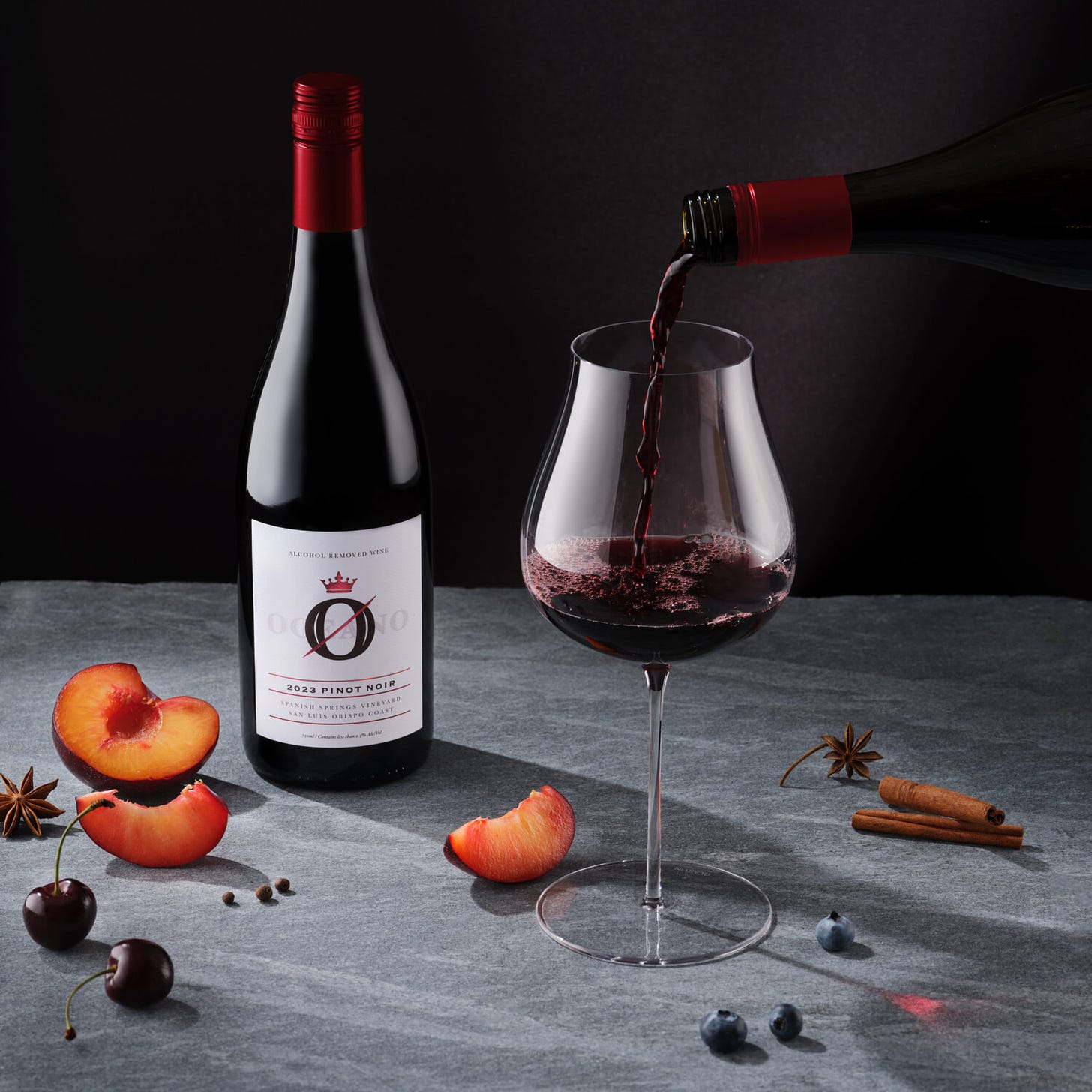
I know the existence of these are a wee controversial right now, as they've been swept up as part of the misinformation campaigns being championed by Neo-prohibitionists worldwide. This, though, is the first comparison to orange wines, which were swept up in the "Natural" wine movement and philosophy of the 00's and dismissed and/or despised for that association. But neither are, at their core, essential to or even really a part of those politically-charged worldviews. And eventually, much as with orange wine, Non-Alcoholic / Low-Alcohol (<5% ABV) wines will need to be understood on their own terms as well.
The reason for this article is the revelation that boutique winemakers who truly care about the quality of the product, the industry, and the things that separate wine from any other beverage have come to try their hands at Non-alc and Low-alc wines. They're making products that retain terroir and varietal expression, "zero"-ing in on how to make the tannic structure of reds and the lack of additional body in whites work as a holistic final product without said alcohol.
And folks, that changes things.
How Can It Be Wine?
We often talk about the need for alcohol in anything that can seriously be considered wine. Obviously, this has been true for all of human history, up until very recently, so it's not a strange stance to take.
Certainly, anything that is a "Non-Alcoholic Wine Alternative" aka it's not wine nor has it ever been, does not fit the category. But "Non-Alcoholic WINE", full stop, does.
Wine is a fermented product, and we have to concede that all Non-alc and Low-alc wines are both fully fermented products. The removal of alcohol occurs only post-fermentation, sometimes even after extended ageing with the alcohol intact. So the final liquid is far more than grape juice, no matter how snarky we may want to be about it.
As to the claim that anything called "wine" MUST contain alcohol, well, that may just be stubborn thinking on our part. We never had the option before, but now we do. And we have to also concede that the way wine is made and the properties of the final product have been reimagined at rare but key moments in our history of making it - this isn't a first, nor will it be the last.
For example, let's look at Orange Wine one last time: for the vast majority of humanity's winemaking history, wine has included a tannic structure of some sort. The press was an invention that had to be invented, and early versions did not keep color and tannins entirely out of the wine. As we now collectively remember: Orange Wine *was* "white wine", wine made with white-skinned grapes, for a very long time. It wasn't until the invention of refrigeration in the late 19th century that the "clean" version of white wine became popular and accepted. (It likely wasn't very good without refrigeration, and had a comparative lack of body and flavor - sound familiar?)
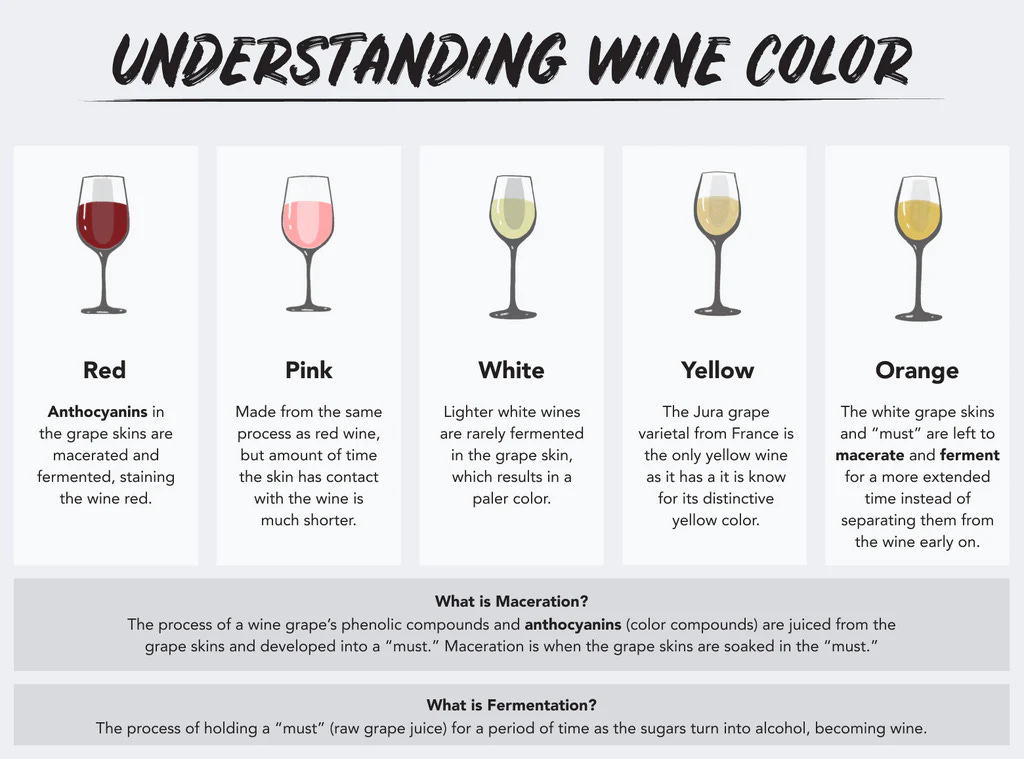
Even early Champagne and sparkling wine were often called "Grey" wines for the skin and lees sediment that they couldn't remove from the final product.
Now, imagine how enormous the change must have been to suddenly remove ALL flavor, color, and textural compounds from the skins. I imagine at least a few commentators would have claimed that nothing of the sort could be called "wine".
We've additionally added and subtracted seemingly non-negotiable properties from wine over the centuries. We learned to halt malolactic fermentation to choose between malic and lactic acids and how much of either. We learned carbonic and semi-carbonic maceration to decrease tannins while keeping skin colors, aromatics, and flavors. Removing water and intensifying sugars and alcohol through dehydration of the grapes. Purposefully oxidizing the wine to remove all primary fruit characteristics. Don't even get me started on botrytis/noble rot!
Fruit, acid, tannin, sugars, alcohol - we've controlled for these in different ways through different methods as we invent them. Controlling for alcohol isn't new. But removing the majority of it or even the entirety of it definitely is, though only because it was never within our ability before.
The real question is: can we remove alcohol at those levels while retaining the hallmarks that make wine different from nearly every other beverage in the world: an artisanal product that expresses both terroir and varietal character.
The Winemakers Who Think We Can (At Least a Few of Them)
Rachel Martin and Oceano Wines
I've recently stumbled upon numerous podcasts and interviews with winemaker Rachel Martin of Oceano Wines. Rachel has over 20 years of experience in winemaking and viticulture, originally working at her family’s Boxwood Estate Winery in Middleburg, Virginia. Oceano was formed to create exceptional wines from the Spanish Springs Vineyard on the San Luis Obispo coast, notably Pinot Noir and Chardonnay.
Oceano wasn't formed to make non-alc or low-alc wines, but the rising interest in those products, plus the terrible quality of those options currently on store shelves, inspired Rachel to try her hand at it.
Oceano now makes an "Oceano Zero", a non-alc version of their Pinot Noir and a non-alc version of their Chardonnay - they make and release them right alongside their full-alc versions!
According to the website:
"Oceano Zero proves that non alcoholic wines can be created with the same artistic intention as traditional wines, distinguished by factors such as climate, geology, geography, viticultural practices, and winemaking decisions. Like Oceano’s original wines, Oceano Zero features single-vineyard, single-vintage ultra-premium wines sourced from the sustainably-certified Spanish Springs Vineyard along the San Luis Obispo Coast. On January 21, 2024, our 2022 Pinot Noir vintage sold out."
According to Rachel, via different interviews, making non-alc and low-alc wines (Oceano also produces a low-alc Syrah at 3.5% ABV) is the hardest thing she's ever set out to do. She's not done figuring it out yet - like all new things, they're only going to get better with time - but when she debuted her Oceano Zero line, it was hugely popular, PLUS the sales of her full-alc wines increased by 200%!!!
Most customers bought BOTH the non-alc and full-alc wines, together. This actually fits with reported trends within the drinks industries - only about 17% of consumers say they don't drink at all. Most buy non-alcoholic products to mix 'n match with alcoholic ones. This will mean less overall alcohol consumption, but not a complete abandonment of alcoholic products (not by a long shot.)
And let's face it, the "industry" CAN include non-alcoholic products just like Rachel and Oceano do. It doesn't have to be harmed by the rise in interest of these products. Or...perhaps we should call them "styles"? (I know, I'm pushing buttons, but I'm also quite serious.)
Studio Null
Based out of San Francisco, but sourcing grapes from European vineyards, the founders have currently made wines with Portugieser, Sylvaner, Pinot Gris, Pinot Blanc, Tempranillo, and Syrah.
Like with Oceano, they've only had two vintages/releases thus far, so these are early days. But according to their website:
"Studio Null was founded in 2021 by friends on a mission to make the best non-alcoholic wines on the market. The goal: original, dry and delicious non-alcoholic wines. Ones that would pair well with Michelin-starred meals, dinner parties with friends, and any other moment that calls for wine, without the alcohol.
We source from family-run vineyards in Europe with a focus on quality, sustainability and land stewardship. To make the highest quality non-alcoholic wines, we start with real wine, then use innovative approaches to distill the alcohol out. We never add artificial flavors or colors because, like all the best wines, these bottles reflect a specific place at a specific time. We include harvest year/vintage, varietals, source region and vineyard on each bottle so that our wine is traceable from vine to glass.
The result? Traditional winemaking. Complex taste. No alcohol."
Moa Gürbüzer and Oddbird
Here's a lady who was a bit ahead of the curve. Founded in 2013 by Swedish entrepreneur, Moa Gürbüzer, she's been poking at making fine non-alcoholic wine for over a decade now.
Coming from a background with family-related alcohol problems, Moa was inspired to try to make non-alcoholic beverages that competed with the real thing. She uses a "patented process" to remove the alcohol that's her "secret". For the European readers, you might want to give these a try to see if there's anything to that!
I am intrigued by her wines' write-ups like this one:
Domaine De La Prade Organic Merlot & Shiraz
A youthful, full-bodied and fruity wine from the Languedoc-Roussillon region of France. The Domaine de la Prade is made from ecological Merlot & Shiraz grapes, creating tones of blackberry, cherry and plum, with a slight hint of caramel. Domaine de la Prade Merlot & Shiraz is matured for 12 months before being gently liberated from alcohol.
According to the website:
“Oddbird’s success lies in its commitment to quality. The company collaborates with winemakers who respect tradition and nature. The wines are matured for up to 12 months and then gently liberated from alcohol using a unique method that preserves the wine’s natural flavors and aromas. This meticulous process ensures that the end product is not just an alternative to alcoholic wines but a premium beverage in its own right. If you want to know more about our wine-making process, you can do it here.”
Special Mention: Giesen
Shoutout to New Zealand winery Giesen. The podcast "XChateau" just did an interview with them about their own Zero Alcohol wines and how they've improved and impacted their business. I listened to it while putting the finishing touches on this article. Some absolutely brilliant insights in this one! Give it a listen.
So Where Do We Go From Here?
I'm going to make this prediction right here:
Non-Alcoholic Wine and Low-Alcohol Wines - wine styles wherein we can control the amount of alcohol to as low as 0.5% - is the next big innovation within the wine world.
As with all new things, like an emerging new wine region or hybrid grape varieties or (as this very much is) a brand new technique, it's going to take time. It's GOING to get better the longer we work at it. And, in time, it will be seen as another option for winemakers, another style of winemaking.
The aforementioned Oceano selects specific blocks within their vineyards that work best as non-alcoholic wine, vs. those that make better higher-alcohol wines. That's what winemakers do - they reconsider options when a new option becomes available.
I have no doubt there are precious few reading this who will agree, and that's okay - mind-changing takes time, too.
But I'm also excited about the implications for winemaking in general from this new technology - we are already beginning to figure out how to make wines of terroir and varietal expression while removing nearly all the alcohol from the base wine. But imagine using the new techniques to simply combat climate change's ever-increasing ABV in many other wines. What if we just removed 1% or 1.5%? Get that 15% ABV red back down to a more balanced 13.5%?
Fermented fruit juice, regardless of what is done to it post-fermentation, is factually "wine". Removing the alcohol doesn't magically restore it to being pre-fermentation fruit juice, any more than removing acidity, sugar, or tannin does.
What truly matters, is whether this new style can be more than a big box brand money grab. The old saying goes: "You can't make good wine with bad grapes." And in similar fashion, you can't make good non-alcoholic wine with bad wine. If fine winemakers tackle the challenge head-on, there is no telling how far they can push the quality. If wine of this style can adhere to what makes fine wine special - varietal expression and expression of place - then we have a new fine wine style.1
Most Non-alc wine on the market has thus far been pumped out by large brands more interested in filling store shelves and making a new buck than quality. Naturally, these haven't been impressive. But that's changing.
Wine Shouldn't Make Itself the Enemy of Sobriety
I'll close out with this, a significant concern of mine. The wine world shouldn't position itself as the antagonist to sobriety or reduced alcohol consumption.
It's one thing to fight neo-prohibitionist organizations using faulty science to push for government health advisories or absurd taxation; it's another to push back against people choosing to drink less, for whatever their reasons, no matter where we think their getting the idea from. Neo-prohibitionists and Health & Wellness movements might have crossover, but they are nevertheless not the same thing.
I was a bit squeamish about the "Come Over October" event this year, but couldn't put my finger on precisely why. It was dropped as a new "drink more" event in the same month as a new "sober" event, and in direct response to said sober event. It was meant to highlight wine's social, friendly, joyous, communal role. But pulling it out like a bat to swing at Sober October is not a strategy that can be seen as friendly or social. That's just straight-up antagonism. To sobriety.
Writer
finally put this into words recently, before my own brain did, in correspondance with fellow wine writer :"(1) This push against movements like Sober October or Dry January feels off. I don’t think being defensive about people’s desire to cut back on their drinking is a good strategy. Making wine seem like it’s better than/less harmful than hard liquor feels like an outdated approach too. It’s kinda snobbish. On the other hand, there’s Dr. Laura Catena who wants to use science to counter the anti-alcohol sentiments but I think Eric Asimov said it best. I don’t see moderation as a threat and I don’t think it’s why wine's popularity is tanking. We should be embracing no/low options and encouraging people to be responsible drinkers, if they choose to drink at all.
(2) The Come Over messaging keeps wine planted in that land of frivolity. I’m tired of this insistence that wine facilitates social connection while disconnecting it from the people who make it.2 Honestly, when I see any wine media lately, the title of a poem by Noor Hindi instantly comes to mind."3
Also this excellent - though much more pointed - piece by
, who is a sobriety proponent, but not in terms of legislation or lobbying government, jut in terms of individual lifestyle choices. And she makes some good points about the tone-deafness of the wine industry being unable to distinguish between individual choice and burgeoning mindfulness vs. what we perceive as a nefarious special-interest push.There's also the argument recently dropped on the VinePair podcast that Millennials have simply reached mid-life crisis age - and we ALL start making different lifestyle choices at that stage of our lives. Alcohol consumption amongst any generation hitting certain life benchmarks have dropped, even in the past. We just didn't have social media rubbing it in our noses until now. But we might want to relax a bit, and allow them the same grace we had to do whatever we thought best for ourselves, at whatever stage in our personal evolutions.
Cheers to The Non, Low, High, and Everything In-Between Alcohol Future
The wine industry has little to lose in embracing de-alcoholization techniques as fine winemaking techniques.
There is only so much of the population who will ever go true-blue sober. Full-alcohol wine will always have a market. But as to that segment that will become sober out of either necessity or an enhanced sense of well-being? The sober-curious and the more moderate? Wine doesn't have to lose out to these interests or groups, we simply have to provide them what they want.
And we can.
We can even do it without sacrificing quality or culture.
Cheers to all the wines, whatever their alcoholic content, even those with the alcoholic content of a banana.
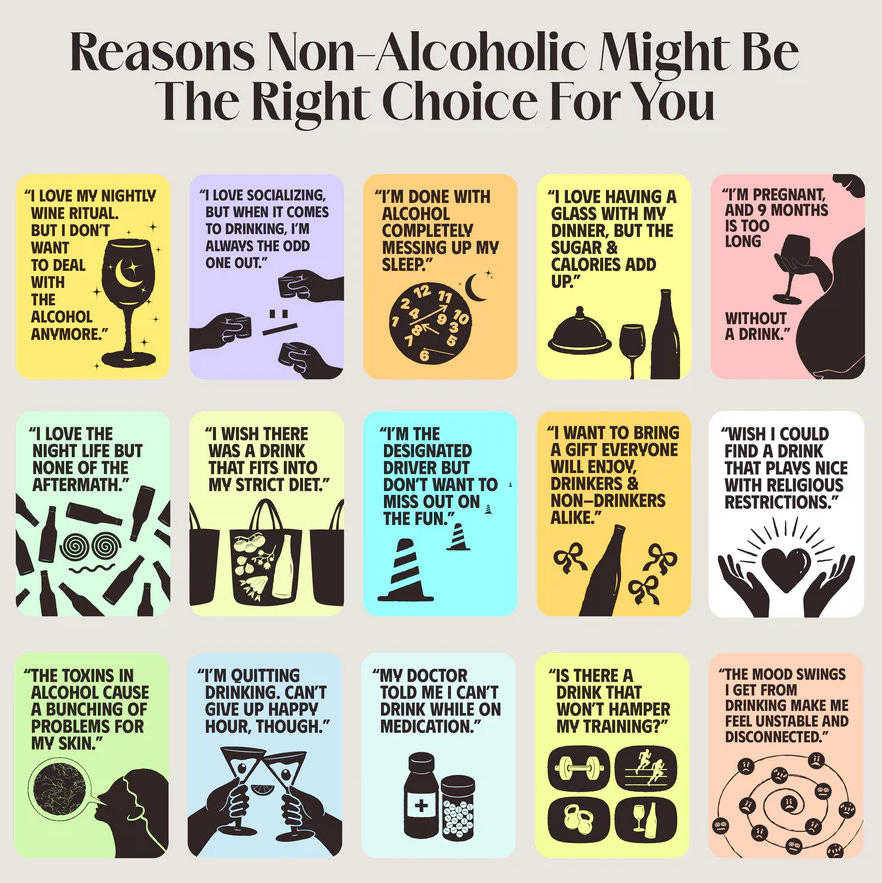
It'll be a different style - things like a shorter finish will (likely) be unavoidable. Much as with dry yet still low ABV whites, we would never directly compare their body or finish to that of a heavily macerated, high-ABV red. Likewise, we shouldn't compare a dry non-alcoholic wine with that of a wine with sugar and/or higher ABV. Maybe there's no way to make that actually good, but I can’t be that pessimistic - we figure these things out in time. Plus, of course, become accustomed to them. No one has to like any given style. But some will.
Read her full article for context - it's well worth it. But in brief, Farrah is referring to Palestinian and Lebanese winemakers and the lack of care the wine world has had for their recent plights, outside of talking more about them thanks to absolute horror, avoidable deaths, and communities unmoored by the actions of the Israeli government, which America is standing by and refusing to so much as push back on while nevertheless funding the entire invasion.
This is such a good poem, everyone should read it.





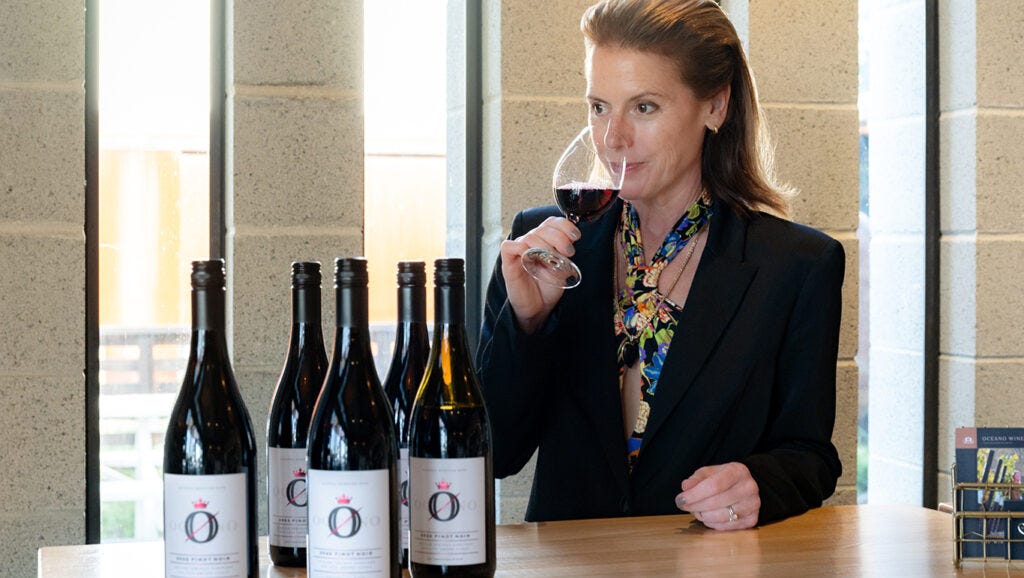
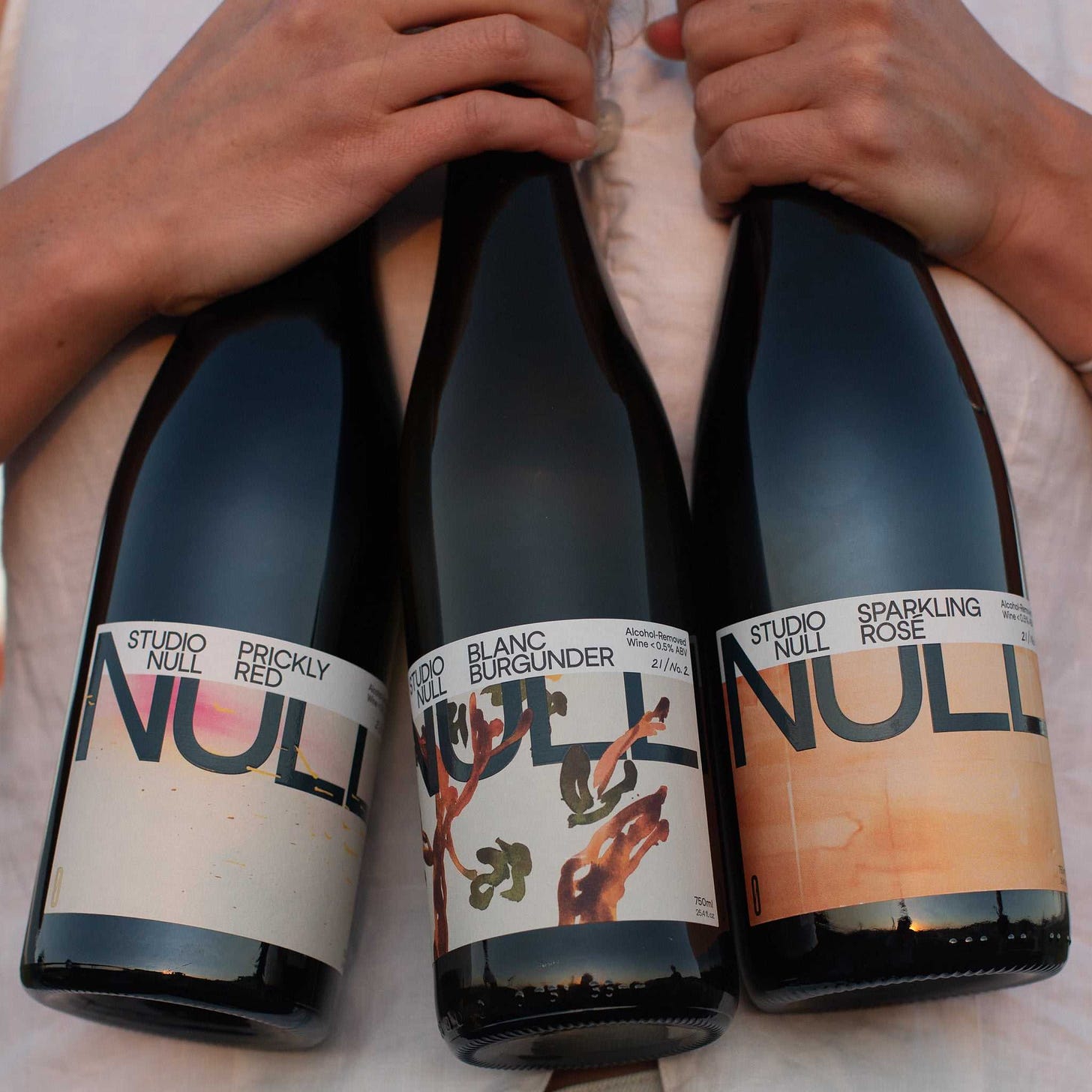
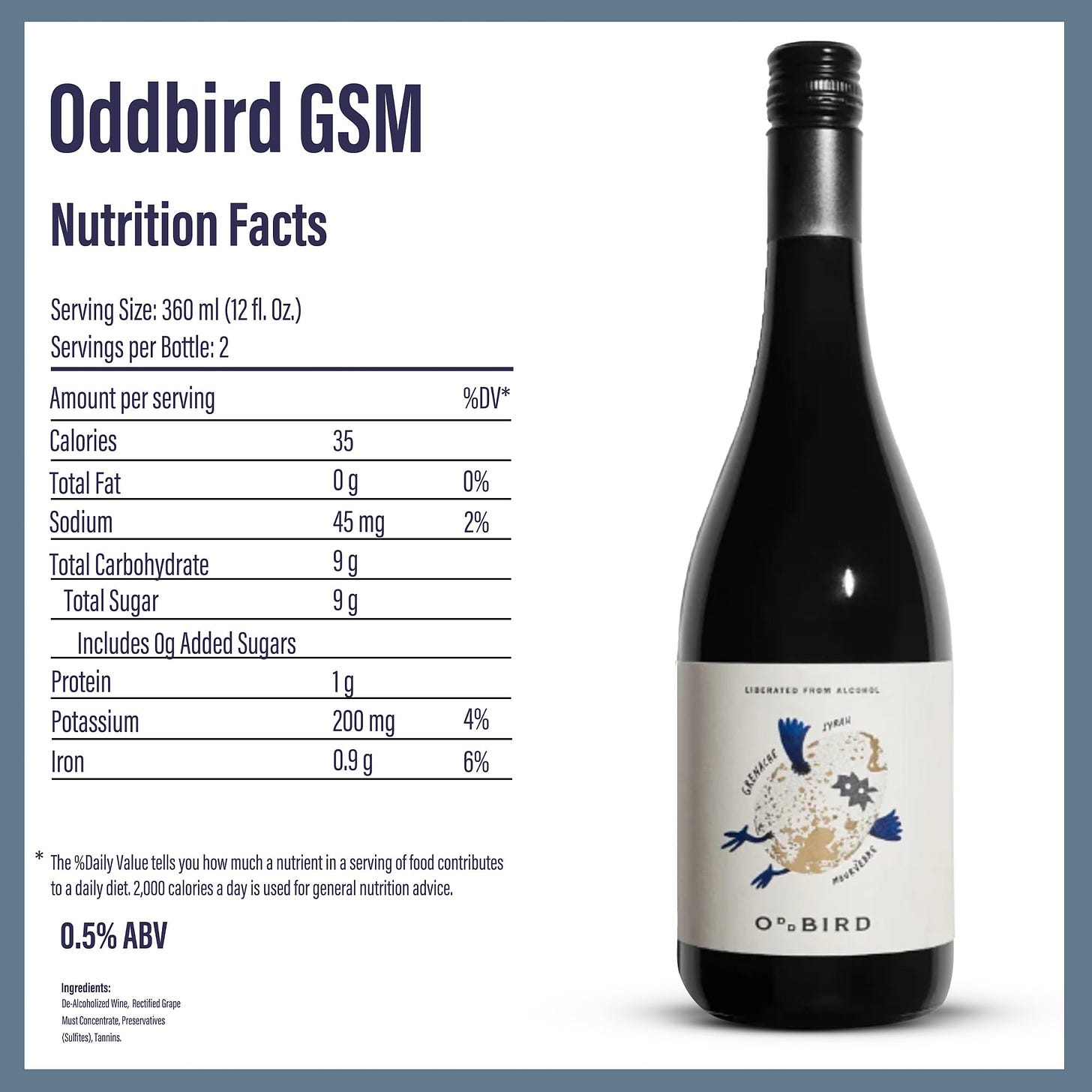
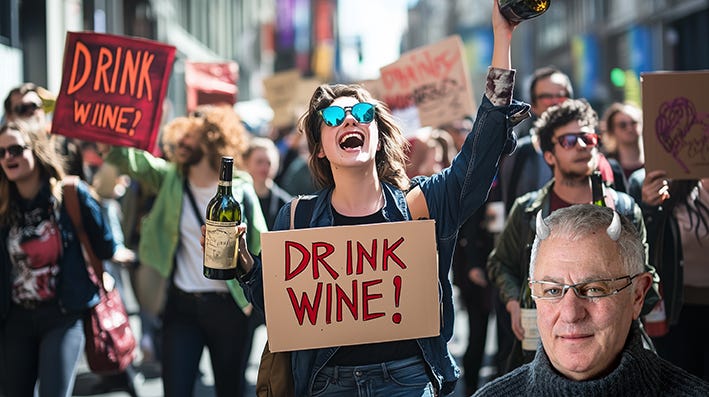
Very good write up! Enjoyed it a lot. There is however one overarching problem that I have yet to hear a good answer to when it comes to non-alcoholic wine, and that is how you maintain body in the wine. You can no doubt get flavour and terroir expression, but the 13 or so percent of alcohol in a normal wine contributes a huge amount of mouthfeel, without which it would come across as thin and lacking. I say this as someone who enjoys a fair amount of non-alcoholic beer, which suffers from the same issue, but to a less noticeable extent. You’re either left with a different expression altogether that feels far removed from any regular wine, or you try to emulate the effects of alcohol on body through additives. Neither is super appealing in my book. It’s not enough to be nonalcoholic for its own sake, it still needs to be good, and (and I’m happy to be proven wrong) I doubt we are there yet. Kombucha is great though, so maybe that’s one avenue to explore?
David, love to see more wine folks talking about this important topic. As a former wine bar owner and award winning sommelier I’ve spent the last three years studying, tasting and pairing de-alc wine as it has resonated with me in a way to a more lasting future for our industry. I wrote a piece at the end of October about some of the topics you mention - I’d love to share it in thread, with permission to continue the conversation.
Also - highly recommend Leitz as a producer. As Josi has been one of the best German and Riesling producers of a generation, his line of Eins Zwei Zero were early to this movement. His whites and sparkling wines are on level with some of his best alc wines